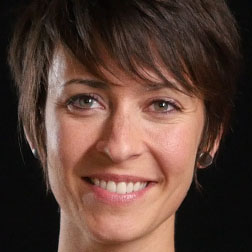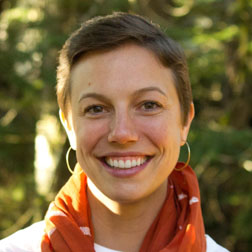The large multipurpose room in the community college was full – chairs clustered around tables, and it buzzed with the hum of about 100 people saying hello to each other.
And, there was an electricity in the room that felt exciting, unpredictable, and somewhat volatile.
I was midway through a series of open dialogue meetings centered around the budget of a staggering $9.5 billion operation in the province where I live.
On this particular day, we were in a rural community which had been hard hit by declining resource industries, impacts from globalization, and a poor outlook for stable employment.
We had been briefed that a particularly upset stakeholder group, also members of the community, were in attendance wanting to disrupt the meeting to actively lobby for a particular response from the government.
Just at the prescribed meeting start time, a sudden rush of energy and noise emerged. It was chaotic, with voices shouting over each other, and several bodies moving in a tight group – like a rugby scrum – with a single-minded intention to reach the front of the room.
Our starting comments were abruptly drowned out by the angry scuffling and comments like “This is bullshit! We want our money!”
I felt suddenly exposed, a little threatened, and more than a bit at sea.
So much was going on inside of me – including:
1) A threat to my ego:
This resistance and anger is obviously not about me, right? It is not personal. Or is it?
Oh no! Was I being considered ‘the bad guy’ or colluding with power, rather than being my envisioned ‘beneficent host’ of the dialogue session?
2) Presence and Awareness: I drew upon Zen practice: ‘Look at the fear, rather than being captured by it’. I ‘have fear’ rather than ‘I am afraid’. Noticing my breath and finding my ground.
3) Co-regulation: Checking (without words) to align with my client – the Minister. “Check!” – I could feel the mutual connection, the “we got this”, and felt more stabilized.
4) A response: We conferred between us – maybe 15 words were exchanged – and asked the rest of the room for a short “time boxed” delay. Done.
And this is the most important part of the whole experience for me.
5) A response that was both overt and subtle.
My rational mind knew that threatened livelihoods and concerns for their community and their businesses were real, but the intensity in the moment didn’t need more rationality – it was just too emotional.
I needed to make a physical change, a move, to join with the energy rather than become frozen and unable to respond. For me, when there’s conflict and pushback and anger in the room, attending to my stance, my breath, and feeling into my heart space can open up perspectives, in me and in others.
I invited the group to sit with us at one of the dialogue tables, so we could ‘sit across from each other, and lean into what you have to say’ with interest.
It wasn’t without a container. My client asked them if they were willing to respect the intention of the meeting, to make the essential point in a quick and clear fashion, and then to disperse and rejoin the more diverse discussion groups in the room. They agreed – creating some shared safety and connection.
My earlier perception of ‘knowing their concerns’ felt very flimsy (it was simply based on an expert staff briefing prior to the session). So as I sat, I dialed up more receptivity, more curiosity and feeling so that I could relate.
With mutual respect, my client and I leaned in, listened, empathized and reflected back. We acknowledged their care, frustration and worry, and the Minister extended a solid follow up action. We all thanked each other, eye to eye, and definitely more heart to heart. The whole thing was efficient, painful, intense and reassuring.
The observers, the rest of the community members who had agreed to delay the start seemed content, and we moved onto the agenda without a further hitch.
When I think back to that series of meetings, I can sense the weight of the personal stakes that were expressed by various participants, and I can feel the heat from the fire of emotions that ignited when passions clash. And this is the place where the art of giving and receiving, of listening as much as speaking, is most alive for me.
This intensity is not a reason to turn away, because within these discussions lies the potential to shape the destiny of communities and influence the course of society. To be truly impactful is to be open to be shaped by the delicate dance of dialogue, even if the attempts at dialogue and sharing perspectives are not always pretty.
In those moments of heat and pushback, I could have easily taken it personally. These subtle patterns differ from one person to another: It is not about me! Or, it’s all about me! Both can be equally incorrect, but what seems to really matter here is that I needed to shift from identifying as being threatened and vulnerable, to being empowered again so I could be of service.
As a facilitative leader, when I embark on a journey where there is an equal possibility for voices to blend as there is to collide, I hold onto a hope and a higher intention that diverse perspectives will get enough tending to to be able to find each other, and intertwine. I hope for a new form of collective wisdom to emerge from the shared experiences and conversations around the table. AND I’m not naive – the possibility for confusion, disagreement and resistance are also present.
The road to that higher intention requires me to be present to and empathize with the challenges faced by individuals seeking to participate in novel ways and to find common ground, amidst competing priorities, past experience, and differing understandings about the context.
Each of us practices this art through our own ‘self as instrument’. And in this set of meetings, my unique instrument – this blend of ‘Rebecca’s capacity and limitations’, was dedicated to create trust. If there is any special ‘me-ness’ in my contributions to that project, it’s that I really embodied being present, hopeful and upright in conveying the integrity and trustworthiness of the process and each other, and responding with compassion.
Behind the art, is the principle that the power of collaboration lies not in dominating others but in finding harmony amid diversity – which as we all know, is easier said than done.
This is why I am so passionate about supporting facilitative leaders to grow their presence, perspectives, and agility.
As always, we’d love to hear your comments and how this story touches you.


